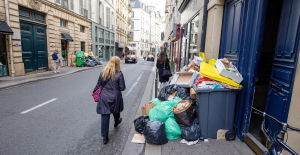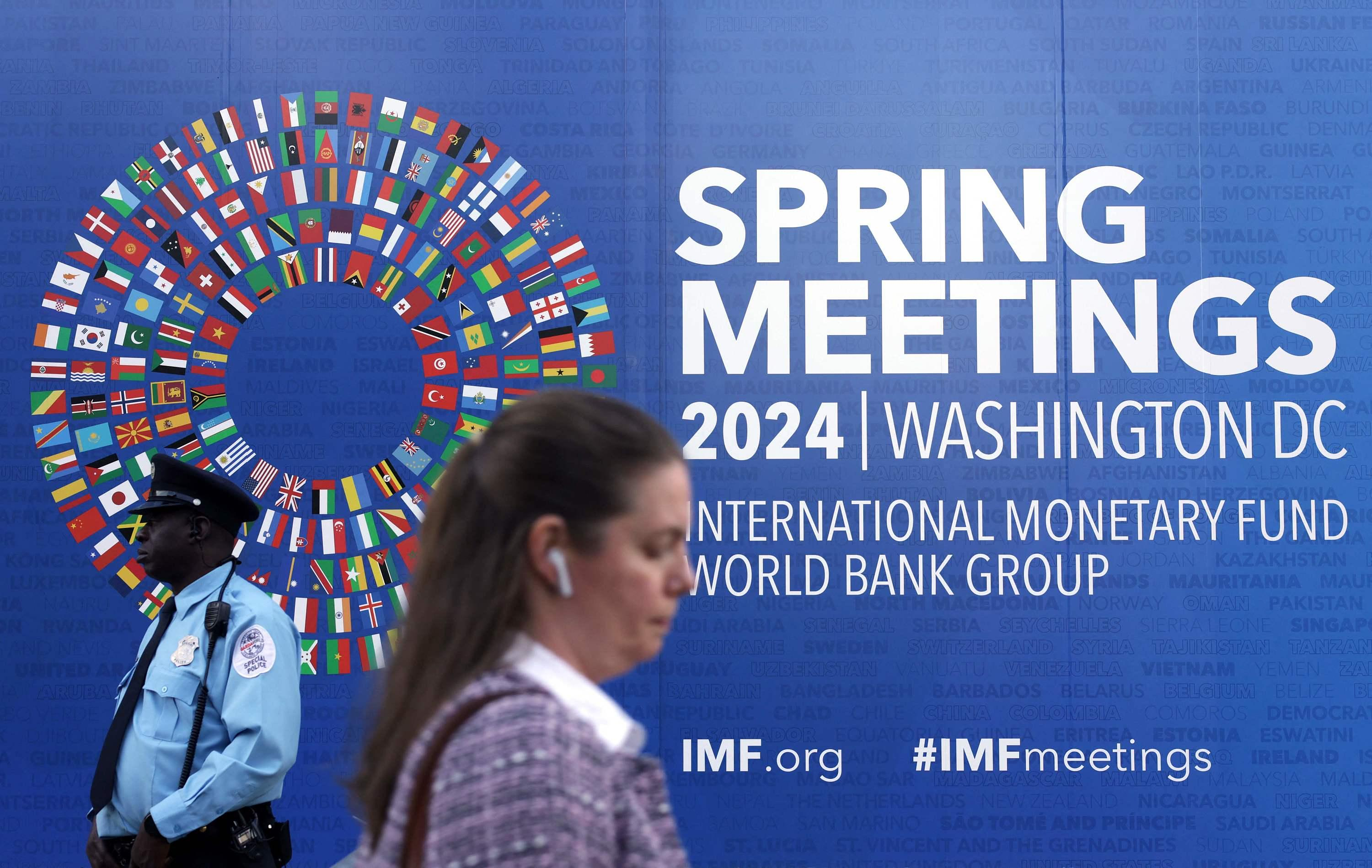For about a year, since the beginning of the war and the high inflation, the food problem has worsened, says Wolfgang Büscher. He is spokesman for Arche, an association with free offers for children from socially disadvantaged backgrounds. It is “extreme” in Berlin, but the problem also exists at the other of the almost 30 locations in Germany. Büscher tells of children who went to school without breakfast and came to the facilities starving. And about mothers who skip lunch so that their children can have a full meal in the evenings.
The queue at the Ark food distribution in Berlin-Hellersdorf is very, very long. 650 families were there recently, 1000 registered for the next time, says Büscher. In particular, the increased prices for staple foods such as bread, flour and oil are challenging. "The families already buy the cheapest of the cheap," he says. And still it's not enough. He emphasizes that he is by no means only talking about people with foreign roots.
Even though healthy eating has been an issue for many organizations in this country for decades, price increases have made it even more difficult for people on low incomes to eat a balanced diet. If the price is decisive and you are also under stress, there is a risk that sugary, salty, greasy products will end up on the plate. There is still a lack of current data on this. However, ahead of Healthy Eating Day on Tuesday, experts from science and various organizations are seeing alarm signals.
What should the diet ideally look like? The German Society for Nutrition (DGE) recommends eating a variety of foods, i.e. not eating the same thing every day. According to the ten DGE nutrition rules, fruit and vegetables should be consumed daily: at least five portions. In addition, about whole grain bread and daily dairy products. Vegetable fats are healthier than animal fats. You only need meat and fish once or twice a week and then not that much of it. You should also be economical with sugar and salt.
"Definitely" the nutritional situation, especially of low-income families, has deteriorated due to inflation, says Hans Hauner, Director of the Else Kröner-Fresenius Center for Nutritional Medicine at the Technical University of Munich. And the group affected has probably grown since the beginning of the war. Hauner sees signs of a deterioration in the situation, among other things, in reports of declines in the purchase of fruit and vegetables and organic food and in the high number of people eating at food banks.
Hauner also sees his assumption supported by his own surveys on the corona pandemic. This has further exacerbated health inequality in Germany. Lack of exercise and weight gain were not temporary phenomena in all groups. In some cases, negative tendencies have become established, for example in children from poor families and children who were already overweight. This threatens to continue in the current crisis.
According to surveys, the Robert Koch Institute estimates the impact of the pandemic on the eating habits of children and young people to be low overall - and in some cases even sees positive effects. For example, more was cooked at home. However, it is said about low-income households that children and young people eat school meals less often, eat fruit less often and drink soft drinks containing sugar more often.
How many people in Germany are affected by so-called nutritional poverty is not known due to a lack of systematic surveys, says Lena Volk from the Institute for Nutritional Behavior at the Max Rubner Institute. The unemployed, single parents, families with more than two children, people with low qualifications or people with a migration background are often affected. However, it is not just down to the wallet whether people can eat healthily. "The level of education is more important than the financial situation." Volk means, for example, knowledge about healthy eating or about keeping stocks.
“It cannot be said in general how a poor household eats,” says Volk. There is also a time factor: Households that have lived in poverty for a long time tend to eat unfavorably. Because of other time-consuming and energy-consuming problems, the topic is often not a priority. It's all about saturation. A 2002 study of poor household nutrition states: “Health only becomes the focus of attention when a family member falls ill.”
In addition to older people, the health consequences of food poverty particularly affect children: “They are said to be hungry when they lack vitamins and minerals even though they have consumed enough calories,” says Volk. The calories then come from sweet soda or nutrient-poor fast food. One possible consequence is growth disorders. "An unfavorable diet in childhood often persists into adult life."
Hauner fears that diseases such as obesity and diabetes will have lasting consequences for the health system. “Despite the extreme price increases in food, the state has not acted. It is obvious that with the standard rates, a sensible diet is hardly possible,” he criticizes. And emphasizes that a VAT exemption for fruit, vegetables and whole grains would still be useful now. Luise Molling from the consumer protection organization Foodwatch calls for the costs of healthy eating to be calculated and included in the standard rate of citizen income.
At the Arche, employees are now experiencing nutrition-related health problems at first hand, as Büscher says. An example is bad teeth. If nothing is done about it, it will make the job search more difficult later. A vicious circle.
In the packages of the Arche, people mainly find non-perishable staple foods, such as bread and preserves. Sure, sweets are good. In the queue in Hellersdorf, a woman from the Ukraine says: Her children would have been most happy about a jar of Nutella.
"Aha! Ten minutes of everyday knowledge" is WELT's knowledge podcast. Every Tuesday and Thursday we answer everyday questions from the field of science. Subscribe to the podcast on Spotify, Apple Podcasts, Deezer, Amazon Music, among others, or directly via RSS feed.

 Knife attack in Australia: who are the two French heroes congratulated by Macron?
Knife attack in Australia: who are the two French heroes congratulated by Macron? Faced with an anxious Chinese student, Olaf Scholz assures that not everyone smokes cannabis in Germany
Faced with an anxious Chinese student, Olaf Scholz assures that not everyone smokes cannabis in Germany In the Solomon Islands, legislative elections crucial for security in the Pacific
In the Solomon Islands, legislative elections crucial for security in the Pacific Sudan ravaged by a year of war
Sudan ravaged by a year of war Covid-19: everything you need to know about the new vaccination campaign which is starting
Covid-19: everything you need to know about the new vaccination campaign which is starting The best laptops of the moment boast artificial intelligence
The best laptops of the moment boast artificial intelligence Amazon invests 700 million in robotizing its warehouses in Europe
Amazon invests 700 million in robotizing its warehouses in Europe Inflation rises to 3.2% in March due to gasoline and electricity bills
Inflation rises to 3.2% in March due to gasoline and electricity bills Olympic Games-2024: which professions are likely to strike during the competition?
Olympic Games-2024: which professions are likely to strike during the competition? Pizzas sold throughout France recalled for “possible presence” of glass debris
Pizzas sold throughout France recalled for “possible presence” of glass debris “As for a football player, there is a contract”: Carlos Tavares defends his remuneration of 36.5 million euros
“As for a football player, there is a contract”: Carlos Tavares defends his remuneration of 36.5 million euros Stellantis: shareholders validate the controversial remuneration of Carlos Tavares
Stellantis: shareholders validate the controversial remuneration of Carlos Tavares Dune 3 will be the last film of Denis Villeneuve's adaptation
Dune 3 will be the last film of Denis Villeneuve's adaptation Shane Atkinson, humble disciple of the Coen brothers
Shane Atkinson, humble disciple of the Coen brothers Outcry from publishers against the authorization of advertising for books on television
Outcry from publishers against the authorization of advertising for books on television Eddy de Pretto celebrates his “last party too many” at the Olympia
Eddy de Pretto celebrates his “last party too many” at the Olympia Skoda Kodiaq 2024: a 'beast' plug-in hybrid SUV
Skoda Kodiaq 2024: a 'beast' plug-in hybrid SUV Tesla launches a new Model Y with 600 km of autonomy at a "more accessible price"
Tesla launches a new Model Y with 600 km of autonomy at a "more accessible price" The 10 best-selling cars in March 2024 in Spain: sales fall due to Easter
The 10 best-selling cars in March 2024 in Spain: sales fall due to Easter A private jet company buys more than 100 flying cars
A private jet company buys more than 100 flying cars This is how housing prices have changed in Spain in the last decade
This is how housing prices have changed in Spain in the last decade The home mortgage firm drops 10% in January and interest soars to 3.46%
The home mortgage firm drops 10% in January and interest soars to 3.46% The jewel of the Rocío de Nagüeles urbanization: a dream villa in Marbella
The jewel of the Rocío de Nagüeles urbanization: a dream villa in Marbella Rental prices grow by 7.3% in February: where does it go up and where does it go down?
Rental prices grow by 7.3% in February: where does it go up and where does it go down? Europeans: the schedule of debates to follow between now and June 9
Europeans: the schedule of debates to follow between now and June 9 Europeans: “In France, there is a left and there is a right,” assures Bellamy
Europeans: “In France, there is a left and there is a right,” assures Bellamy During the night of the economy, the right points out the budgetary flaws of the macronie
During the night of the economy, the right points out the budgetary flaws of the macronie Europeans: Glucksmann denounces “Emmanuel Macron’s failure” in the face of Bardella’s success
Europeans: Glucksmann denounces “Emmanuel Macron’s failure” in the face of Bardella’s success These French cities that will boycott the World Cup in Qatar
These French cities that will boycott the World Cup in Qatar Dortmund-Atlético: two months before the Euro, Griezmann warms up the engine
Dortmund-Atlético: two months before the Euro, Griezmann warms up the engine Football: Bernd Hölzenbein, 1974 world champion, died at 78
Football: Bernd Hölzenbein, 1974 world champion, died at 78 'Everything comes to an end': Surfing legend Kelly Slater moves closer to retirement
'Everything comes to an end': Surfing legend Kelly Slater moves closer to retirement Athletics: the victory of a transgender athlete causes controversy in the United States
Athletics: the victory of a transgender athlete causes controversy in the United States


















